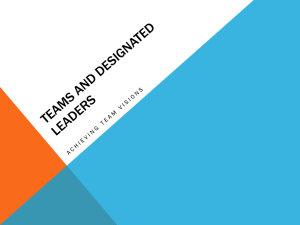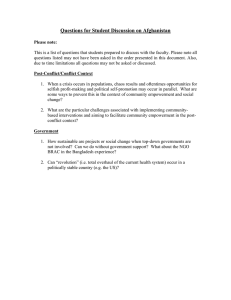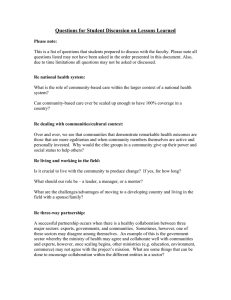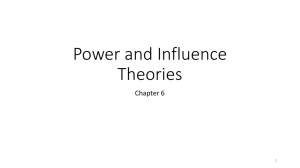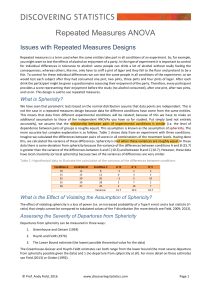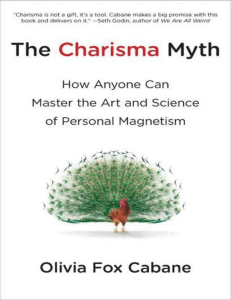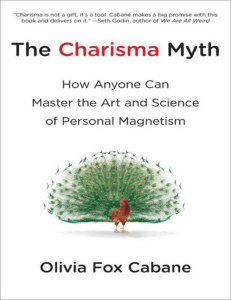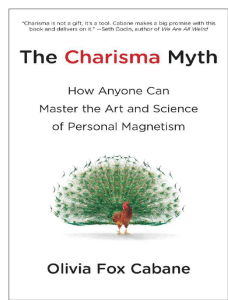Power Empowerment How to get it How to use it
advertisement
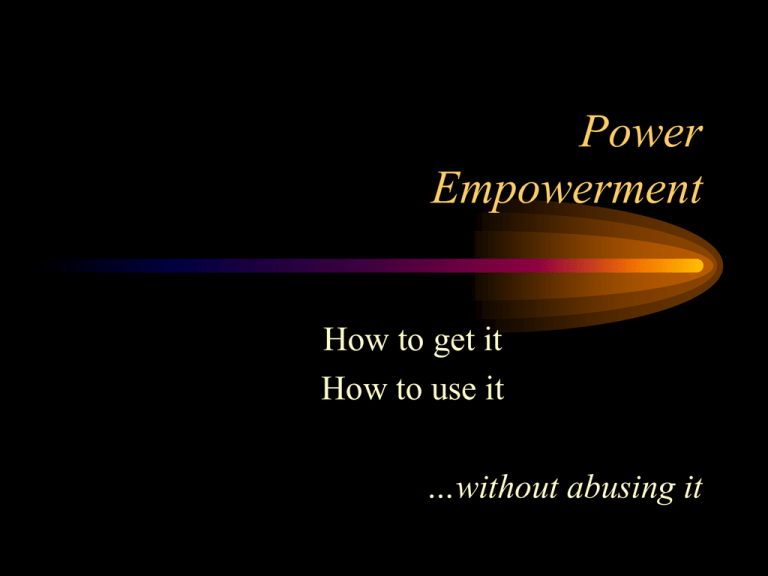
Power Empowerment How to get it How to use it …without abusing it Definition • • • • • A “four letter word”? Influence? Control over others? Being able to get things done? ?????? What Is Power? • The Capacity to Influence Individuals or Groups to Behave in Ways They Would Not on Their Own • Power Is a Function of Dependence A shifting definition… • Reflects the new “reality” of organizations • A new definition of “employee” Why does having power matter? With power you can… • Intercede favorably on behalf of someone in trouble • Get a desirable placement for a talented subordinate • Get approval for expenditures beyond the budget • Get items on and off agendas • Get fast access to decision makers • Maintain regular, frequent contact with decision makers • Acquire early information about decisions and policy shifts The goal? • Overcome feelings of powerlessness • Convert power effectively into interpersonal influences in ways that avoid the abuse of power To empower yourself To facilitate the empowerment of others How Can Power Be Acquired? • Position Power – Authority – Rewards – Punishments • Personal Power – – – – – Expertise Charisma Effort Access to Information Association Power Sources of Personal Power • Expertise: task relevant knowledge or experience • Charisma: desirable characteristics • Effort: higher than expected commitment of time ** • Access to Information • Association Expertise • Formal training • On the job experience • Specialization …but can be typecast Charisma • Agreeable personality (likeability) • Impression management (magnetism) • Attractive physical appearance Is this necessary? Does it lead to empowerment? Effort • Managers will reward (and promote on the basis of) hard work. • Coworkers? Sources of position power • The nature of one’s position and task assignments Position Power • Authority (legitimacy) • Rewards • Punishment Characteristics of Position Power • • • • • Centrality Criticality Flexibility Visibility Relevance How ELSE Can Power Be Acquired? • Creating Dependency • Impression Management • Politicking – How Political Are You? Politicking – How Political Are You? • Interpretation • Implications • Three-step Political Diagnostic Analysis – Assess the Organizational Culture – Assess the Power of Others – Assess Your Own Power Using Power to Maximize Your Managerial Effectiveness • What Can You Do to Improve Your Political Effectiveness? – – – – – – – – – Frame Arguments in Terms of Organizational Goals Develop the Right Image Gain Control of Organizational Resources Make Yourself Appear Indispensable Be Visible Get a Mentor Develop Powerful Allies Avoid “Tainted” Members Support Your Boss Using Power to Maximize Your Managerial Effectiveness (continued) • What Specific Power Tactics Can You Apply? – – – – – – – Reasoning Friendliness Coalitions Bargaining Higher Authority Assertiveness Sanctions Should You Use Defensive Behaviors to Protect Your Power? • • • • Avoiding Action Avoiding Blame Avoiding Change Effects of Defensive Behavior Consider the Cost-benefit Equation • Weigh Potential Costs of a Political Strategy against Its Potential Benefits. Exhibit 14.1: Is a Political Action Ethical?
